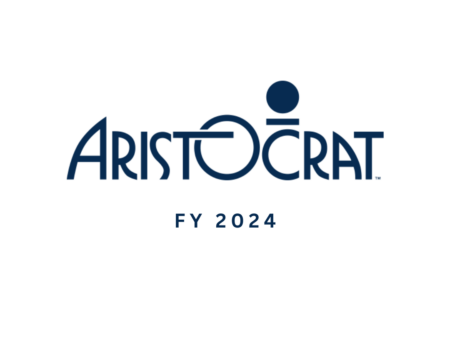In a recent interview with Thai media, Thailand’s Prime Minister Srettha Thavisin emphasized the need to legalize gambling as a strategic measure to tackle the pervasive issue of illegal gambling in the country. According to the Prime Minister, these illicit operations have been flourishing for years, generating trillions of baht without contributing any tax revenue to the nation. Thavisin’s proposal aims to transform this shadow economy into a legitimate industry, thereby increasing tax revenues significantly.

Thailand’s Prime Minister Advocates for Legalizing Gambling to Address Illegal Market and Boost Revenue
A Strategic Move Towards Legalization
Prime Minister Thavisin’s stance is clear: the illegal gambling sector, although immensely profitable, remains untaxed and uncontrolled, thus failing to benefit the country’s economy. By legalizing these activities, Thailand could not only bring in substantial tax revenues but also establish regulatory frameworks to ensure fair and safe gambling practices. This move is seen as a crucial step towards modernizing Thailand’s economy and aligning it with other countries where gambling is legally regulated and taxed.
Upcoming Casino Bill
In a related development, Thailand’s Deputy Finance Minister announced that the final draft of the much-anticipated ‘casino bill’ is expected to be ready within four weeks. If passed, this bill would mark a historic shift in Thailand’s stance on gambling, paving the way for the construction of casinos. Under the proposed legislation, casinos would be permitted to operate within entertainment establishments, occupying no more than 5% of the total space.
Economic Implications
The legalization and regulation of gambling are projected to bring substantial economic benefits to Thailand. Estimates from 16 relevant government agencies suggest that the introduction of legal casinos could attract investments ranging from TBH30bn to TBH50bn (approximately US$0.8bn to US$1.3bn). These investments would not only stimulate economic growth but also create numerous job opportunities, thereby boosting the overall employment rate in the country.
Legal Adjustments and International Interest
However, the legalization of gambling will necessitate significant adjustments to existing laws. The government agencies have acknowledged the need for a comprehensive review and modification of current regulations to accommodate the new legal framework for casinos and other gambling activities.
The potential legalization has already piqued the interest of major international players in the gambling industry. Notable companies such as MGM China, Galaxy Entertainment Group, and Genting Singapore have expressed their interest in investing in Thailand’s emerging gambling market. Their involvement would bring in not only financial investments but also expertise and global best practices, ensuring the development of a robust and responsible gambling industry in Thailand.
Conclusion: The Prime Minister’s Proposal
Prime Minister Srettha Thavisin’s proposal to legalize gambling represents a bold and forward-thinking strategy to address the existing illegal gambling issues in Thailand. By transforming an underground economy into a legitimate and regulated industry, Thailand stands to gain significant economic benefits, including increased tax revenues and foreign investments. The upcoming casino bill, if passed, will be a monumental step in this direction, promising a new era of economic growth and development for Thailand. As the nation prepares for this potential transformation, it will be crucial to carefully navigate the legal and regulatory challenges to ensure the successful implementation of this ambitious plan.
FAQs on Thailand’s Plan to Legalize Gambling
1. Why is Thailand considering legalizing gambling?
Thailand is considering legalizing gambling to address the pervasive issue of illegal gambling, which generates trillions of baht without contributing to the nation’s tax revenues. Legalization aims to bring these operations under regulation, ensuring fair practices and increasing tax revenues.
2. What did Prime Minister Srettha Thavisin say about legalizing gambling?
Prime Minister Srettha Thavisin stated that illegal gambling businesses have been operating in Thailand for some time and are worth trillions of baht but do not contribute to the nation. He believes it is time to legalize these businesses to reap more tax revenue.
3. What is the status of the proposed casino bill?
Thailand’s Deputy Finance Minister has announced that the final draft of the ‘casino bill’ will be ready within four weeks. If passed, it would allow casinos to be built within 5% of the space in entertainment establishments.
4. What economic benefits are expected from legalizing gambling?
Legalizing gambling is projected to bring in investments ranging from TBH30bn to TBH50bn (approximately US$0.8bn to US$1.3bn). This would stimulate economic growth, create job opportunities, and significantly boost tax revenues.
5. Will there be any legal adjustments needed if gambling is legalized?
Yes, legalizing gambling will require significant adjustments to existing laws. Government agencies have acknowledged the need to review and modify current regulations to accommodate the new legal framework for casinos and other gambling activities.
6. Which international companies have shown interest in Thailand’s gambling market?
Major international players like MGM China, Galaxy Entertainment Group, and Genting Singapore have expressed interest in investing in Thailand’s emerging gambling market.
7. How will legalizing gambling benefit Thailand’s economy?
Legalizing gambling will transform an untaxed, illegal industry into a regulated sector, increasing tax revenues and attracting foreign investments. This will lead to economic growth and job creation.
8. What is the potential impact on employment from legalizing gambling?
The introduction of legal casinos and gambling establishments is expected to create numerous job opportunities, thereby boosting the overall employment rate in Thailand.
9. How much space will casinos be allowed to occupy within entertainment establishments?
Under the proposed legislation, casinos will be permitted to operate within entertainment establishments, occupying no more than 5% of the total space.
10. What is the timeframe for the casino bill to be implemented?
The final draft of the casino bill is expected to be ready within four weeks. The timeline for implementation will depend on the legislative process and approval by relevant authorities.

















